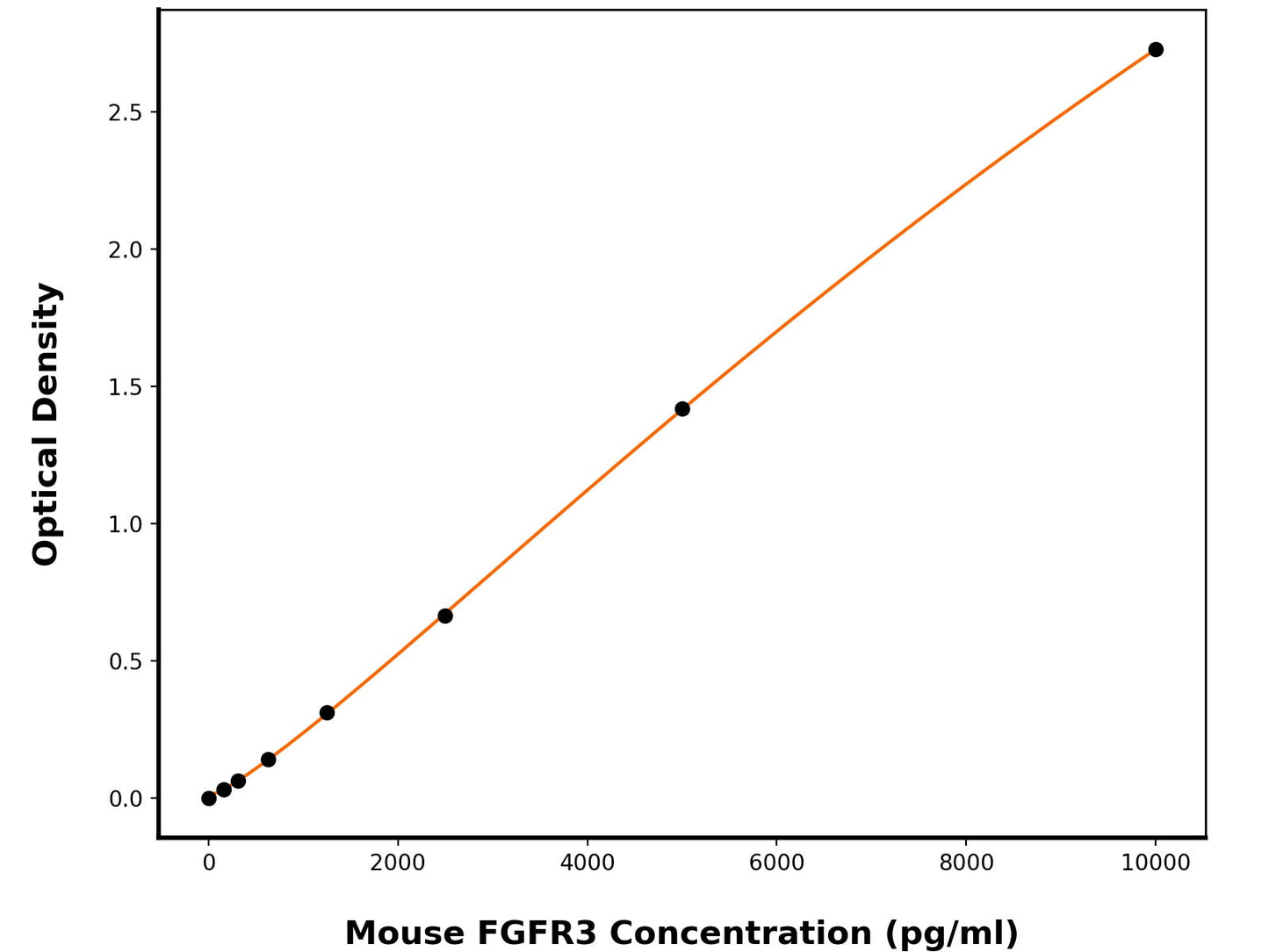1
/
of
1
Mouse Fibroblast Growth Factor Receptor 3 (FGFR3) ELISA Kit
Mouse Fibroblast Growth Factor Receptor 3 (FGFR3) ELISA Kit
This ELISA kit is designed to detect Mouse Fibroblast Growth Factor Receptor 3 (Mouse FGFR3). The assay plate has been pre-coated with mouse anti-Mouse FGFR3 monoclonal antibody. When the sample containing FGFR3 is added to the plate, it binds to the antibodies coated on the wells. Then, a horseradish peroxidase conjugated mouse anti-Mouse FGFR3 Antibody is added to the wells and binds to FGFR3 in the sample. After washing the wells, substrate solutions are added, and the color intensity is directly proportional to the amount of Mouse FGFR3 present. The reaction is stopped by adding an acidic stop solution, and the absorbance is measured at 450 nm.
Catalog No:
BPE286
Regular price
$754.00 USD
Regular price
$580.00 USD
Sale price
$754.00 USD
Unit price
/
per
2 weeks
Couldn't load pickup availability
Product Details
Species Reactivity
Mouse
Sensitivity
56.73 pg/mL
Detection Range
156-10000 pg/mL
Sample Type
Serum, plasma, cell culture supernates
Incubation(s)
3.5 hour(s)
Research Areas
Signal Transduction, Cancer, Cardiovascular, Neuroscience, Stem cells
Background
FGFR3, also known as CD333, is a member of the fibroblast growth factor receptor (FGFR) family, with its amino acid sequence being highly conserved between members and among divergent species. FGFR family members differ from one another in their ligand affinities and tissue distribution. FGFRs are transmembrane catalytic receptors that have intracellular tyrosine kinase activity. Mutations in FGFR genes are the cause of several human developmental disorders characterized by skeletal abnormalities such as achondroplasia, and upregulation of FGFR expression may lead to cell transformation and cancer. FGFR3, a full-length representative protein would consist of an extracellular region, composed of three immunoglobulin-like domains, a single hydrophobic membrane-spanning segment and a cytoplasmic tyrosine kinase domain. The extracellular portion of FGFR3 interacts with fibroblast growth factors, setting in motion a cascade of downstream signals, ultimately influencing mitogenesis and differentiation. FGFR3 binds acidic and basic fibroblast growth hormone and plays a role in bone development and maintenance. Mutations in FGFR3 gene lead to craniosynostosis and multiple types of skeletal dysplasia. Three alternatively spliced transcript variants that encode different protein isoforms have been described. CD333 is the receptor for acidic and basic fibroblast growth factors. Cancer Immunotherapy Immune Checkpoint Immunotherapy Targeted Therapy
Shipping Condition
Shipped on cold gel packs.
Storage Condition and Shelf Life
This product can be stored at 2-8C.
Analyte
Fibroblast growth factor receptor 3
Regulatory Status
For Research Use Only

